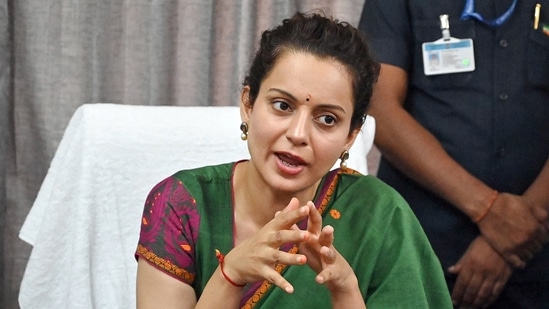Actor and Bharatiya Janata Party (BJP) MP Kangana Ranaut on Tuesday targeted West Bengal chief minister Mamata Banerjee over her remarks on the political crisis in Bangladesh.

Referring to the chief minister’s comments in which she had talked about supporting the Centre’s stance towards Bangladesh, the actor-turned-politician remarked that Mamata Banerjee has “finally acknowledged West Bengal as part of India”.
“Mamta didi also remembered the Prime Minister (Narendra Modi), finally acknowledging Bengal as a part of India for the first time in her life and supporting the Centre,” she wrote in a post on social media X.
“Wow! What a sight. She knows she will be the first one to be targeted as those Bangladeshi refugees, who have been kept as a vote bank, will line up…But Mamta didi can be rest assured she will be protected in Ram Rajya. Nothing to worry, the country is in safe hands.”
Hours after Bangladesh Prime Minister Sheikh Hasina resigned and left the country amid major protests on Monday, Mamata Banerjee had issued an appeal to the people of West Bengal to maintain peace and avoid provocation.
She had also said that her state government will support whatever decision the Centre takes in the matter.
“I would appeal to the people of Bengal to maintain peace. Do not pay attention to any kind of rumours. This is a matter between two countries, we will support whatever decision the central government takes,” Mamata Banerjee had said.
Bangladesh crisis
Sheikh Hasina resigned as Bangladesh’s prime minister and fled the country on Monday.
Hasina,who was in power for 15 years, quit as public anger grew over the death of more than 300 people in a crackdown by her administration on a movement that began as protests against a controversial quota in government jobs and transformed into a mass mobilisation demanding her resignation.
On Tuesday, Nobel laureate Mohammad Yunus was appointed as the head of Bangladesh’s interim government.
The decision was made in a meeting of President Mohammed Shahabuddin with chiefs of the three services and a 13-member delegation of the Anti-Discrimination Student Movement at Bangabhaban.
Yunus won the Nobel Peace Prize in 2006 for his anti-poverty campaign through the Grameen Bank, a mode; which was replicated across continents.


